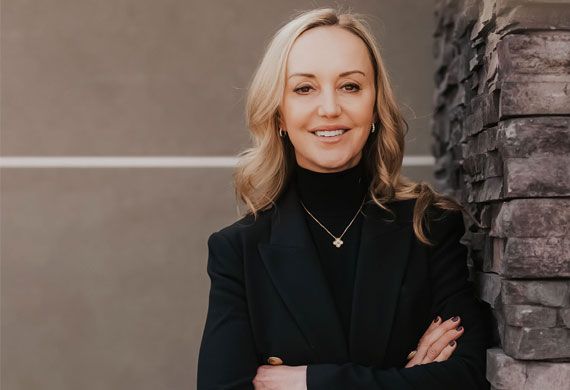Access to dermatologic care remains a significant challenge in the United States, with a shortage of specialists leading to delayed diagnoses and advanced disease presentations. Several patients, particularly those with skin cancer, hesitate to seek medical attention until their condition has progressed to a critical stage, making treatment more complex. Additionally, some dermatologic cancers remain incurable, posing emotional and professional challenges for physicians who strive to provide the best possible care. On the cosmetic side, the growing trend of excessive treatments has led to concerns about overuse, with many individuals prioritizing short-term aesthetic enhancements over long-term skin health.
Dr Whitney Hovenic, a double board-certified dermatologist and micrographic dermatologic surgeon (Mohs) with United Derm Partners, is dedicated to addressing these concerns through early detection, patient education, and a comprehensive approach to dermatological care. She specializes in skin cancer treatment, procedural dermatology, and cosmetic dermatology, utilizing advanced techniques such as laser resurfacing to improve skin quality and support long-term treatment plans. Whether treating advanced skin cancer cases or counseling patients on aesthetic procedures, Dr Whitney prioritizes a comprehensive, patient-focused approach to dermatology.
What key early influences shaped you as an individual?
The two people who had an impact on me early in life were my mother and grandmother. My mother, a single parent, raised my sister and I while juggling multiple careers. Though trained in laboratory science, she had a passion for gardening and turned it into something remarkable, creating well-known gardens in California and even running a store. Watching her navigate different roles with determination showed me the value of persistence and shaped my own drive to pursue medicine from a young age.
My grandmother, a World War II survivor and entrepreneur, also had a profound influence on me. She ran a bookstore that became a hub for community engagement, bringing in global speakers and advocating for small businesses. Deeply involved in social causes, she worked for peace during the Cold War and fought against developments that could negatively impact the community. Even now, at nearly 95, she continues to advocate for her peers. She was born in Germany, grew up in the Philippines, lived in Japan and spent much of her life abroad. Her global perspective inspired me to embrace a broader, more interconnected view of the world.
Tell us about your educational journey. What motivated your foray into the field of dermatology?
I earned a Master’s in Public Health from Dartmouth, specializing in epidemiology and health policy, areas that strongly align with my career today. I then obtained my medical degree from the University of Nevada School of Medicine, followed by an intern year at the University of Nevada. I completed my dermatology residency at the University of Missouri and later pursued a fellowship in procedural dermatology at the University of California, Irvine. Since then, I have been in practice in Reno, Nevada.
I knew from a young age that I wanted to be a physician. My mother worked in oncology, and as a child, I often accompanied her to her office, where I would look through her microscope and became fascinated by medicine. Initially, I thought I would become a pediatrician, but during medical school, I realized I enjoyed working with adults. I also considered oncology but discovered that I had a natural aptitude for hands-on procedures, particularly suturing and reconstruction.
I was exposed to both augmentation and reconstructive plastic surgery, which I found incredibly rewarding. Eventually, I realized I could merge my interests in oncology, reconstructive surgery, and infectious diseases within dermatology, a field that is remarkably broad. In particular, I fell in love with Mohs surgery and micrographic oncology, which form the core of my current practice.
I see my work as more than dermatology, it is advocacy, innovation, and care combined
What makes Mohs surgery so fascinating is that I get to serve as both surgeon and pathologist, removing skin cancer while preserving healthy tissue. Examining the tumor under the microscope allows me to see not just the gross specimen but also how the cells behave. This real-time analysis often reveals that tumours are more aggressive than initially thought. The interplay between surgery, pathology, and reconstruction makes dermatology an incredibly fulfilling field, as I can guide patients through every stage, from tumor removal to complete reconstruction.
Introduce us to United Derm Partners. What are the primary skin ailments and procedures that you specialise in at the healthcare clinic?
I practice at the Skin Cancer and Dermatology Institute, which is part of our parent company, United Derm Partners. The institute was founded nearly 30 years ago, and we joined United Derm Partners in 2016. Being part of a larger group provides us the crucial support, especially in managing administrative challenges like insurance authorizations and staffing. As physicians, we can focus on patient care while a dedicated team handles the business side of medicine.
Our practice specializes in dermatology, treating conditions affecting the skin, hair, and nails. We handle a wide range of cases, from psoriasis and eczema to skin cancer. My primary focus is skin cancer, particularly Mohs surgery. However, as a dermatologist, I also diagnose and treat other conditions that may present during patient visits.
Skin cancer is especially prevalent where I practice, due to our high altitude and sunny climate. We are located near Lake Tahoe, surrounded by ski resorts and outdoor recreation areas, attracting people who have spent years enjoying the sun. Many of our patients, now in their 40s,
50s, and 60s, are experiencing the long-term effects of sun exposure resulting, in a high number of skin cancer cases that require treatment.
What are the major challenges you encounter in your role as a dermatologist? How do you overcome them?
One of the unique challenges in my role as a dermatologist, particularly in Mohs surgery, is that my patients remain awake throughout the procedure. Unlike traditional hospital surgeries, where general anesthesia is used, Mohs surgery relies solely on local anesthesia, which can be uncomfortable until the area is fully numbed but allows for complex procedures to be done safely in the outpatient enviroment. To minimize discomfort, we take multiple measures, such as using ice packs, topical anesthesia before injections, and, for more invasive procedures, administering nitrous oxide.
Beyond pain management, I believe creating a calming environment plays a crucial role in patient comfort. A warm blanket, soothing music, and a comfortable chair can make a significant difference. Most importantly, my team is trained to engage with patients in a way that helps ease their anxiety. Whether it’s talking about their families, travels, or interests, we strive to make every patient feel seen as a person, not just as someone undergoing a medical procedure. This human connection not only helps them relax but also enhances their overall experience. I also learn so much from my patients during their procedures. We are able to discuss their lives, their children, their careers. I meet the most fascinating people on a daily basis.
Another challenge we face is managing excessive bleeding or unexpected complications during reconstruction. In such moments, it’s essential to stay composed and confident, ensuring patients never sense our concerns. Our ability to maintain a reassuring presence makes all the difference in helping them feel at ease. At the end of the day, if a patient leaves smiling, I know we’ve done our job well.
What have been the biggest ‘wins’ that you have achieved so far in your professional journey?
One of my earliest and most meaningful achievements was serving as the resident representative to the board of directors for the American Society of Dermatologic Surgery. While still in training, I had the opportunity to collaborate with some of the most influential figures in dermatology, contributing insights on how to engage and integrate new dermatologists into the field. My ideas were taken seriously, and we implemented programs based on my contributions, which solidified my passion for leadership in dermatology.
Building on that experience, I later co-founded the Nevada Society for Dermatology and Dermatologic Surgery to fill a critical gap in the state. With no dedicated dermatology society at the time, I collaborated with a small group of colleagues to establish one, and eventually served as its president. Today, the organization plays a crucial role in advocacy, education, and policy work, giving Nevada’s dermatologists a strong voice in the broader medical community.
In recognition of my work, I was named Best Dermatologist in Reno, Nevada, in 2018, and I’m currently in the running for the title again. In 2019, I received the Sun Smart Superstar Award from the Nevada Cancer Coalition for my contributions to skin cancer awareness and prevention.
What are your current projects and future goals in dermatology?
Right now, I’m focused on expanding access to dermatology and promoting better skincare habits, particularly among younger generations. I’ve noticed a concerning trend, many young people are embracing tanning again, often underestimating the long-term risks of UV exposure.
To address this, I’m developing a skincare line, particularly a sunscreen brand, designed to be both dermatologist-developed and accessible. The goal is to make sun protection more appealing, moving away from the perception that sunscreen is sticky or inconvenient. By offering high-quality, affordable products, I hope to encourage early adoption of good skincare habits and help prevent skin cancer before it starts. This initiative is about shifting attitudes and ensuring that younger generations understand the importance of protecting their skin now to avoid serious consequences later.
Dr Whitney Hovenic, Board-Certified Dermatologist & Fellowship-Trained Mohs Surgeon, United Derm Partners
Currently, I am focused on expanding access to dermatology and promoting better skincare habits among younger generations, particularly as I have noticed a concerning trend of many young people embracing tanning while underestimating the long-term risks of UV exposure
🍪 Do you like Cookies?
We use cookies to ensure you get the best experience on our website. Read more...
Copyright © All rights reserved. Global Woman Leader



.png)
